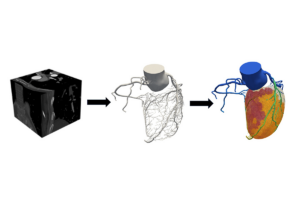AUSTIN, Texas — Technology use among older adults appears to benefit cognitive health rather than harm it, according to a large-scale meta-analysis published in Nature Human Behaviour. The study, which examined data from more than 411,000 adults ages 50 and older, reveals that engaging with digital devices may actually help protect against cognitive decline and dementia.
“The generation that brought us the digital revolution is now reaching the age where dementia risks emerge,” said Jared Benge, Ph.D., co-author of the study and board-certified neuropsychologist at UT Health Austin’s Comprehensive Memory Center. “Far from causing ‘digital dementia,’ as some feared, we found technology engagement is consistently linked to better brain health, even after accounting for education, income and physical health.”
The analysis of 57 studies showed technology users had lower odds of cognitive impairment and reduced rates of decline over time. These protective relationships were observed across computer, smartphone and internet use.
Other key discoveries:
- Brain protection remained strong in both snapshot and multiyear studies.
- The protective effect was comparable to or stronger than established factors such as physical activity and education.
- Effects persisted even when controlling for socioeconomic factors, education and health conditions.
- Positive effects were found in both the 50-65 age group and those older than 65.
The study introduces “technological reserve” as a new protective factor against cognitive decline. Just as education and lifelong learning help the brain resist damage, using technology may strengthen the brain’s ability to withstand age-related changes possibly through multiple pathways: challenging the mind with new learning, maintaining social connections, and creating digital systems that help compensate for normal age-related memory changes.
“Our data suggests encouraging older adults to engage with technology, particularly in a manner that helps challenge, connect and compensate for cognitive problems, could be a powerful approach to promoting cognitive health,” Benge said.




